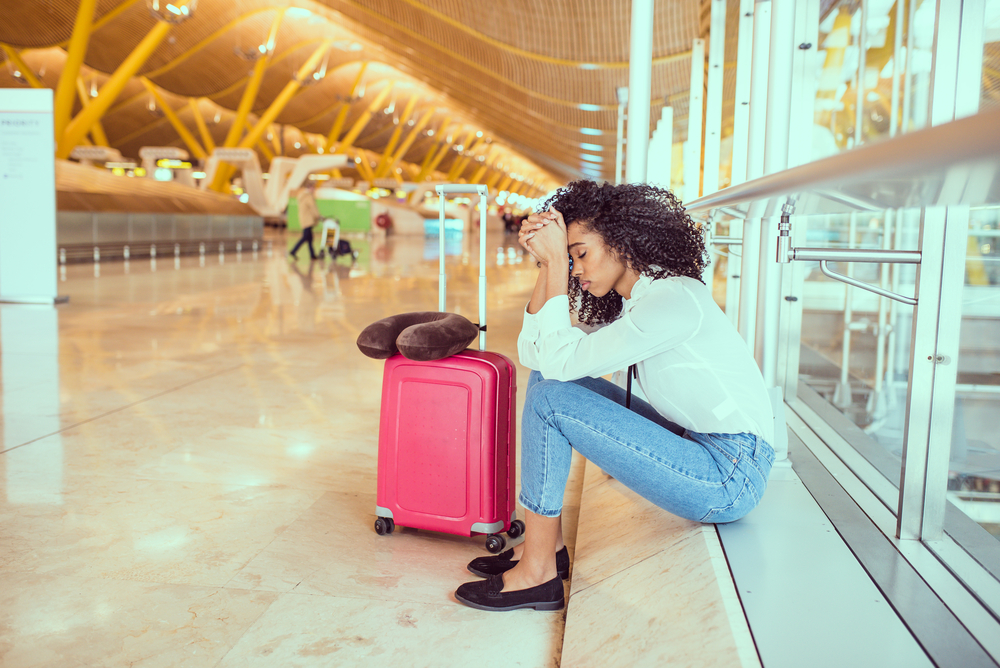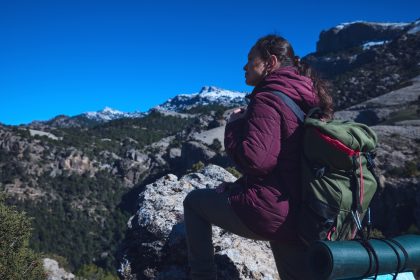Jet lag is a familiar struggle for frequent travelers, but for some people, it seems like a myth. While many passengers emerge from international flights feeling dazed, sleep-deprived and disoriented, others seem to adapt instantly to new time zones. This difference isn’t just luck — it’s rooted in biology, behavior and mindset.
Understanding why some individuals escape the discomfort of jet lag can help others adopt similar strategies and travel with less disruption.
Understanding jet lag and circadian rhythms
Jet lag occurs when the body’s internal clock — called the circadian rhythm — falls out of sync with the local time at a travel destination. This internal rhythm is influenced by light exposure, eating patterns and sleep habits. Rapid travel across time zones disrupts the body’s natural alignment, leading to fatigue, irritability, digestive issues and poor concentration.
However, not everyone is equally affected. Some people rebound quickly from long-haul flights, adapting to new environments within a day or two. The reasons behind this resilience vary and often point to powerful biological and behavioral factors.
Genetics and natural body clocks
One reason some individuals seem immune to jet lag is their genetic makeup. Studies suggest that certain genes help regulate circadian rhythms more efficiently. These genes determine how quickly the body can reset its internal clock after changes in light and schedule. People with more adaptable genes can shift their sleep-wake cycle faster, reducing the impact of time zone changes.
Additionally, people with naturally shorter circadian cycles — those who feel refreshed after fewer hours of sleep — may be better at syncing with new time zones. Their bodies are used to a faster rhythm, making it easier to adjust to shifts in daylight and activity.
The power of sleep discipline
Sleep habits play a major role in jet lag susceptibility. Travelers who maintain consistent sleep schedules and practice good sleep hygiene often recover more quickly. These habits train the brain to recognize sleep cues more effectively.
People who avoid caffeine and alcohol before bedtime, dim their lights in the evening and avoid screens before sleep give their bodies a stronger signal to rest. When they arrive in a new location, they can tap into that discipline to recalibrate faster.
Flexible sleepers — those who can fall asleep in a variety of settings, including planes or unfamiliar hotel rooms — also tend to fare better. Their ability to catch up on rest during transit gives them a head start on resetting their rhythms.
Smart preflight preparation
Some travelers escape jet lag simply because they plan ahead. They begin adjusting their sleep schedule days before departure, either sleeping earlier or staying up later to match their destination’s time zone. This gradual shift reduces the shock to the system upon arrival.
Hydration and nutrition also matter. Well-hydrated travelers experience fewer headaches, better digestion and improved energy levels. Avoiding heavy meals and choosing nutrient-rich snacks during flights can stabilize energy and mood. Strategic use of light exposure — such as spending time outdoors at the right hours — can help reset the body’s clock naturally.
Even choosing flights that land in the morning can offer an advantage. Waking up to natural light and staying active throughout the first day helps the body adapt with less strain.
Mindset and mental resilience
People who never seem to get jet lag often carry a strong sense of purpose and optimism during their travels. Stress and anxiety are known to disrupt sleep and amplify physical symptoms. By contrast, individuals who see travel as an adventure or remain calm despite delays and discomfort tend to bounce back more easily.
A traveler’s belief in their ability to adapt can become a self-fulfilling prophecy. Those who expect to feel terrible often do, while those who embrace the journey tend to experience fewer symptoms. Confidence and enthusiasm can help ease the transition into new environments.
Physical fitness makes a difference
Regular physical activity is associated with more stable sleep patterns and greater overall resilience. Fit individuals usually have better circulation, stronger immune systems and more energy — all of which contribute to faster recovery from time zone disruptions.
Even light movement during long flights, such as walking down the aisle or stretching at the gate, supports blood flow and reduces fatigue. Post-arrival, a short workout or brisk walk can further boost alertness and aid adjustment.
Some seasoned travelers incorporate exercise as a routine part of their arrival ritual, helping to reset their systems and feel grounded in a new place.
Developing personalized routines
For some, the secret lies in structure. High-level athletes, corporate executives and performers who travel often develop personal strategies that reduce stress and protect their well-being. This might include custom meal schedules, meditation, travel pillows or sleep supplements — tools that create consistency amid constant change.
By developing a personalized travel routine, they eliminate decision fatigue and give their bodies reliable signals. These travelers often stick to routines no matter what city they’re in, creating internal stability even when their surroundings change dramatically.
How age and chronotype influence jet lag
Age also influences how people experience jet lag. Younger individuals tend to recover more quickly, thanks to faster metabolism and more robust melatonin production. Older travelers, however, may find adjustments take longer due to shifts in hormone levels and slower adaptation of sleep-wake cycles.
Chronotype — the body’s natural preference for morning or evening activity — can also play a role. Morning people may struggle with westward travel that requires staying up late, while night owls may struggle with eastward flights that demand early mornings. Recognizing one’s chronotype can help guide travel planning and coping strategies.
Environmental support at destinations
Some travelers stay in places that help rather than hinder the body’s transition. Hotels with blackout curtains, noise control and access to outdoor spaces can improve sleep and boost exposure to natural light, helping regulate internal clocks.
The availability of healthy food, fresh air and minimal digital stimulation can speed up the body’s adaptation. Some frequent flyers choose accommodations or cities with these recovery-friendly conditions in mind.
Learning from jet lag-resistant travelers
Not everyone is lucky enough to be immune to jet lag, but there’s much to learn from those who are. Their habits, mindset and preparation offer clues to what the rest of us can do to travel smarter and feel better.
The next time you prepare for a trip, try shifting your sleep pattern ahead of time, staying hydrated, choosing your arrival time carefully and maintaining a sense of calm. While you may not eliminate jet lag entirely, you can dramatically reduce its impact.
With the right knowledge and strategies, anyone can become a more resilient traveler — and maybe even join the ranks of those who never seem to suffer from jet lag.








